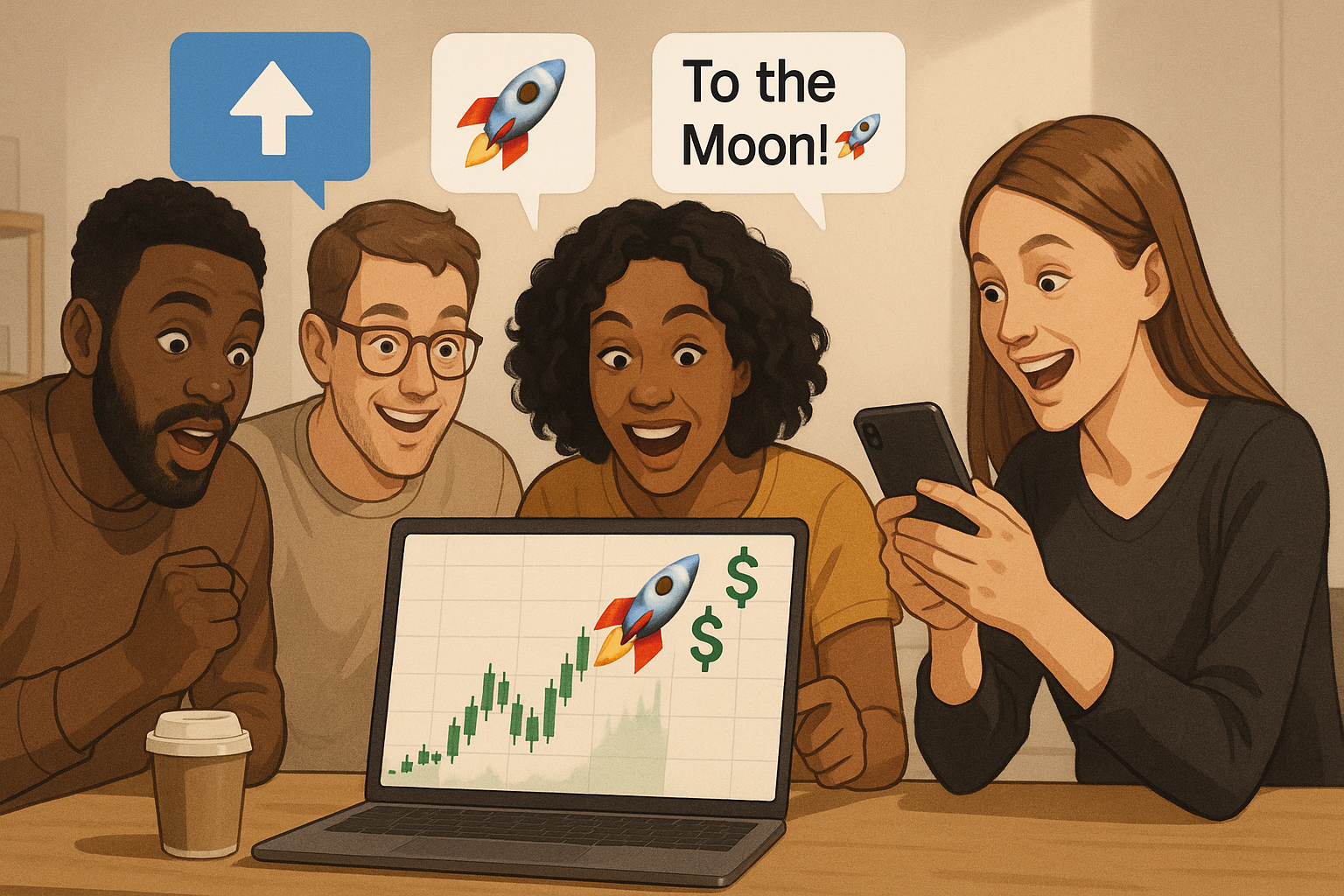The financial corners of Reddit have always been fascinating ecosystems - part trading floor, part locker room, part carnival barking contest. But lately, there's been a palpable shift in the atmosphere that's worth examining. If you've spent more than ten minutes scrolling through certain investment subreddits, you've likely encountered an onslaught of posts championing obscure tickers with rocket emojis and promises of "going to the moon."
Look, I've been around markets long enough to recognize a pattern when I see one. What we're witnessing isn't just organic enthusiasm – it's a calculated effort to create retail investor FOMO (Fear Of Missing Out) during what many would characterize as a speculative bubble in certain market segments.
A model I often use for understanding these dynamics is what I call "Greater Fool Arbitrage." The strategy is brutally simple: buy something not because of its intrinsic value, but because you're confident you can sell it to someone else (the greater fool) at a higher price. The problem, of course, is that this works until it catastrophically doesn't.
The mechanics of these Reddit pump attempts follow a predictable formula: identify low-float, thinly-traded stocks with some memeable quality, create posts with minimal actual analysis but maximum hype language, downvote skeptics as "haters" or "shills," and create the illusion of consensus through coordinated posting. It's market manipulation wearing a Guy Fawkes mask and calling itself democratic finance.
What makes this current iteration particularly interesting is the sophisticated understanding of social media algorithms. The most effective pumpers understand that controversy and engagement drive visibility. They're not just posting rocket emojis – they're creating content designed to trigger both support and opposition, knowing that Reddit's algorithms reward high-engagement posts regardless of sentiment.
The motivations here break down into roughly three categories:
The cynical pumpers: These are experienced traders deliberately creating retail demand to offload their positions at higher prices.
The true believers: Some genuinely believe in their analysis, suffering from confirmation bias and doubling down when challenged.
The entertainment seekers: A surprising number simply enjoy the chaos and community aspects without significant skin in the game.
What's particularly striking is how the language of financial democratization has been coopted to silence criticism. Attempts to warn inexperienced investors about risk are framed as "elitism" or trying to "keep the little guy down." It's a fascinating rhetorical move – transforming basic risk management advice into a supposed attack on class mobility.
There's a brutal irony here. The original "democratize finance" movement was about giving retail investors the same information, tools and opportunities as institutional players. But what we're seeing now is the opposite – creating information asymmetry where naive retail investors are fed deliberately misleading narratives by more sophisticated players.
I mean, markets have always had pumpers and touts. Before Reddit, it was penny stock newsletters, boiler rooms, and "stock tips" at country clubs. The medium changes but the game remains essentially the same. What's different now is the scale, speed, and the co-opting of community identity to drive investment decisions.
The thing is, some participants understand exactly what they're doing. I've spoken with several Reddit "influencers" off the record who openly acknowledge they're playing a game of musical chairs. "Everyone knows these are garbage companies," one told me. "The point is to get in early and get out before the music stops." At least there's honesty in that cynicism.
For the platforms themselves, this creates a genuine dilemma. Heavy-handed moderation risks accusations of censorship, while a hands-off approach enables predatory behavior. Reddit, Discord, and Twitter are essentially hosting modern-day bucket shops without the regulatory framework designed for traditional financial promoters.
So no, you're not crazy for noticing this pattern. The question becomes: what's the appropriate response? Because while it's easy to mock the excesses of meme stock mania, there's something genuinely troubling about watching vulnerable retail investors being set up as exit liquidity for more sophisticated players – all while being told they're striking a blow against Wall Street.
Perhaps the most important thing we can do is maintain a community where actual financial literacy is valued over hype, where skepticism isn't equated with elitism, and where we recognize that true financial democratization requires transparency, not just access.
